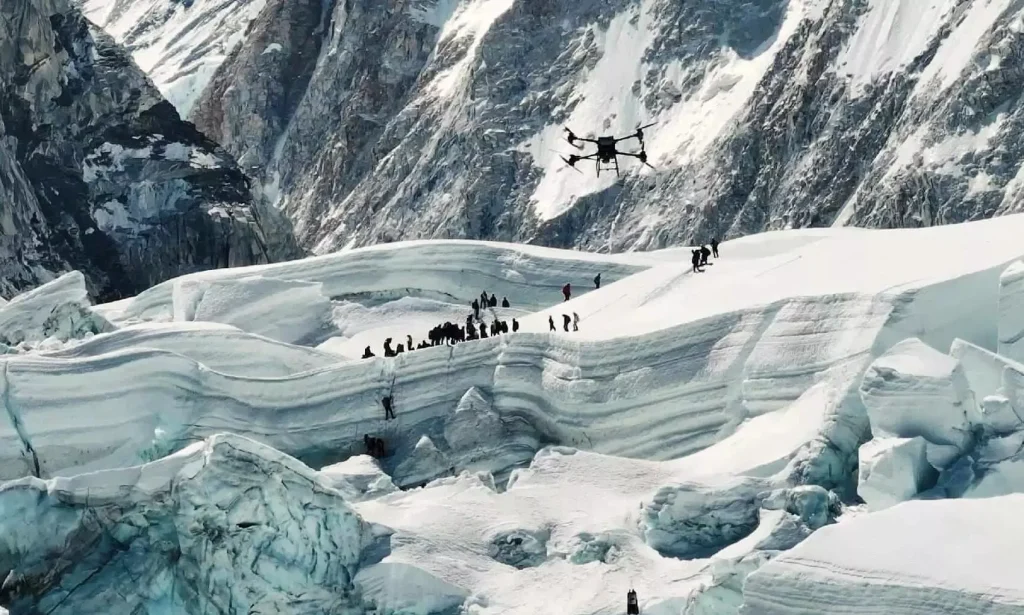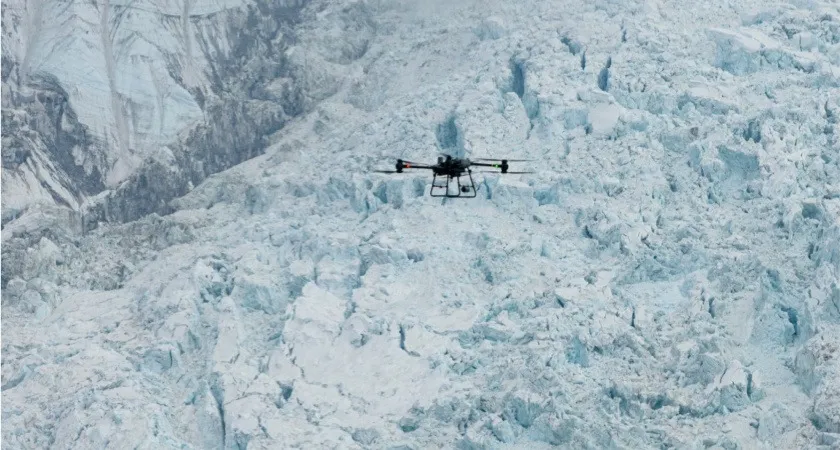DJI Delivery, in collaboration with 8KRAW and local partners in Nepal, has achieved a significant milestone in cargo transport technology. Conducting tests on the southern slope of Mount Everest, DJI successfully completed the first-ever round-trip transport test by a cargo drone at altitudes ranging from 5,300 meters to 6,000 meters.

From April 25 to May 1, 2024, DJI’s FlyCart 30 (FC30) drone underwent rigorous trials, including hover tests, unloaded transport tests, and loaded round-trip transport tests. These tests, conducted between Everest Base Camp (EBC) and Camp 1 (C1) at 6,000 meters, demonstrated the drone’s capability to safely transport up to 15 kg of supplies. This achievement represents a monumental advancement, drastically reducing the perilous journey across the treacherous Khumbu Icefall from 6-8 hours to a mere 10 minutes.
The tests encountered initial challenges due to signal obstructions along the route, prompting the DJI team to adapt swiftly by finding optimal takeoff points and designing robust flight paths. Despite intermittent signal loss, innovative solutions such as extended ropes with self-detaching mechanisms ensured reliable delivery even in adverse conditions.

“Signal obstructions posed initial hurdles, but our adaptive approach and the FC30’s capabilities have proven effective,” remarked a DJI spokesperson. “We are thrilled to pioneer high-altitude drone logistics that not only enhance safety but also contribute to environmental preservation.”
Environmental sustainability is a critical focus of this initiative, particularly in addressing Everest’s status as the “world’s highest garbage dump.” The drone transport project aims to expedite clean-up efforts and minimize the ecological footprint left by climbers. This aligns with broader goals set forth by local authorities and commercial climbing organizations in Nepal to promote sustainable practices in mountain tourism.
Local stakeholders have welcomed the initiative, with a commissioned local operating company launching a regular drone transport project on May 22 from Everest South Base Camp. This marks an early start to the season and signals a pivotal moment in the convergence of technology, environmental stewardship, and high-altitude adventure.
“The application of FC30 in the Everest region marks a significant leap forward in high-altitude logistics,” stated a representative from the Nepalese government. “This innovation not only streamlines operations but also supports our commitment to protecting the fragile mountain ecosystem.”
